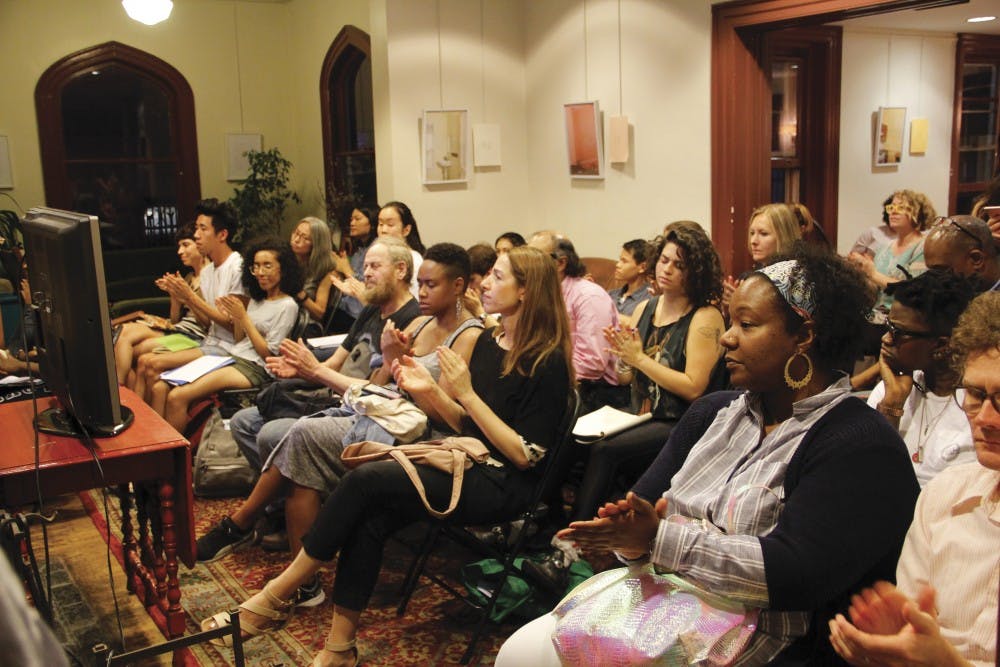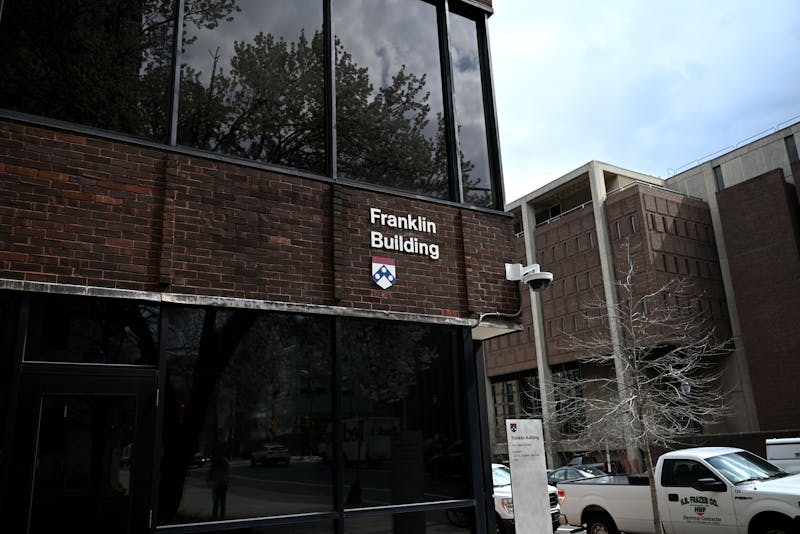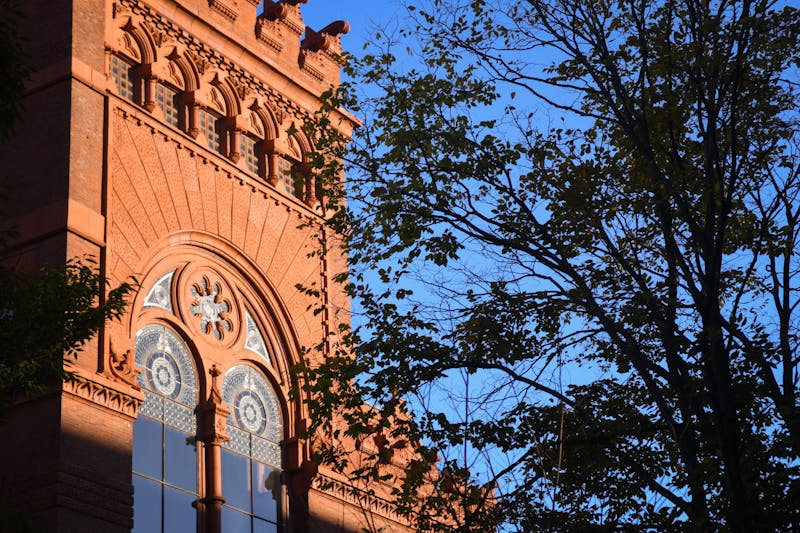
This fall, the Institute of Contemporary Art is working closely with the Penn Creative Writing Program to explore the relationship between language and race.
Speech/Acts, the current exhibition at the ICA, features the work of artists inspired by black experimental poetry. The Penn Creative Writing Program collaborated with the ICA to host a panel at the Kelly Writers House called “Race and Form: A Dialogue” and to hold a series of six reading groups that discuss poetry related to the exhibit.
On Oct. 10, students filled the Writers House to attend a panel discussion on race and form hosted by the curator of Speech/Acts Meg Onli, author Dorothy Wang and author John Keene.
Julia Bloch, English professor and director of the Creative Writing Program, said she was inspired to organize the panel event after speaking to Dorothy Wang about her book, "Thinking Its Presence: Form, Race, and Subjectivity in Contemporary Asian American Poetry."
Bloch said Wang’s book provided “crucial arguments about [the literary] discipline’s failures to reckon with race,” and she “wanted to give the Penn community an opportunity to speak about the topics raised in the book and have a conversation with other artists and thinkers.”
College junior Meerabelle Jesuthasan attended the panel event and said she enjoyed the “pretty intense discussion” that touched on visual art, literature and modern-day politics.
“I also really enjoyed listening about curating and art. I feel like we don’t get that as much at the Writers House,” Jesuthasan added.
Bloch said when she heard about the Speech/Acts exhibition and its focus on poetry, she and Onli decided to create a community reading group to read some of the poetry that had inspired the exhibit.
The reading group has met two times and will continue to convene four more times into December.
Davy Knittle, a third-year English doctoral candidate, helped curate the syllabus for the Speech/Acts reading group and explained how the literature can supplement viewers' understanding of the art exhibit.
“The artists in the show are thinking a lot about experimental poetry. The goal of the reading group is to help folks read some of the experimental poetry that matters to those artists,” he said.
Bloch said this isn't the first time Penn’s Creative Writing Program has collaborated with the ICA. Creative writing classes often incorporate coursework on visual art and invite students to visit the museum. However, Bloch said this collaboration is unique in its diverse combination of academic areas.
“I am always excited to foster cross-disciplinary conversations between artists and poets,” Bloch said, explaining that the panel event addressed political race studies, ethnic studies, Asian American studies, African American studies, Africana studies and literary studies.
She said that she hopes to make poetry more accessible to a broader group of people, and she feels that the reading group was successful in that it introduced some participants to a new form of literature.
David Eng,graduate chair of the English Department, moderated the panel and said that the discussion on race and language is especially relevant in the current political climate.
“The spectacular nature of Trump’s presidency, his bombastic and over-the-top rhetoric, draws immediate attention to the problem of race and form,” Eng said. “Trump’s particular form of political spectacle is a distraction from the deep structure of institutional racism.”
The Speech/Acts exhibition is free to the public until it closes on Dec. 23.
The Daily Pennsylvanian is an independent, student-run newspaper. Please consider making a donation to support the coverage that shapes the University. Your generosity ensures a future of strong journalism at Penn.
Donate






